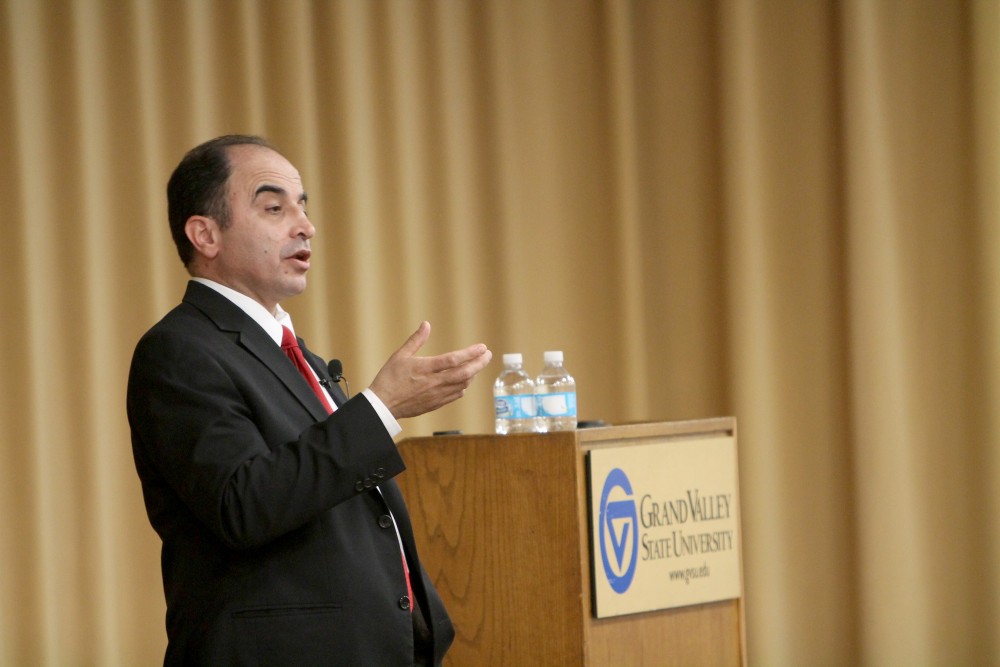Arab journalist discusses fight for democracy

GVL / Gabriella Patti CNN correspondent Ali Younes
Mar 19, 2014
Ali Younes, a 20-year veteran news editor, journalist and expert on the Middle East, spoke at Grand Valley State University on Tuesday about the importance of the Arab Spring and democracy in the Middle East.
Younes said the Arab Spring and Arab culture are intertwined because of their common roots in poverty and democracy, as well as the role the media plays. The Arab Spring, he explained, is a protest for democracy that began in Tunisia, a poor country in northern Africa that did not have a democratic presence.
The people wanted to try something new, Younes said. Discontent and social activism grew. The people took their first steps when they illegally crossed the border into Egypt.
“The Arab Spring united the population,” Younes said. “Arab citizens are not free citizens, in a sense. You’re not in control of your destiny.”
He added that it was the first time in the history of the modern Arab state that change came from within instead of from a military coup or American intervention.
After the revolution began in 2011, Younes said he was shocked because “nobody expected that.” He looked at the facts, studies and numbers relating to economics and concluded that there is “no real economy in the Arab world” because there is no infrastructure for schools and education is not as highly valued as in the U.S., where children are taught how to think critically instead of how to memorize everything.
“Education is key,” Younes said. “They can’t think critically in the Arab world. We need people in every aspect of professional life.”
In addition to the strict control of education, most Middle Eastern governments control the media. Younes said there is no free media in those countries because they do not have proper economic forces or businesses to advertise for the news outlets. Rather than write about the truth, the media writes about how great the leaders are. Younes said he and many others grew up thinking these one-sided views were true.
It used to be that the people would occupy a news station to declare their revolt. However, the Internet and the use of social media have impacted the Middle East in today’s information age. Younes said it is essential because the government cannot control people’s access to information online.
“The role of the media is so crucial to bring the truth to the people,” he said. “Facebook made information possible and accessible to many people around the world. It made communication possible.”
Social media also allows the democracy experiment to continue and gives people hope for a better country in the future, Younes said.
“The Arab world is the only region in the world that anti-democratic forces are so strong,” he said. “It’s too soon to tell if it will succeed or not. The Arab world will succeed only if the Arab people make it succeed. They need to hold the leaders accountable for their actions.”





















